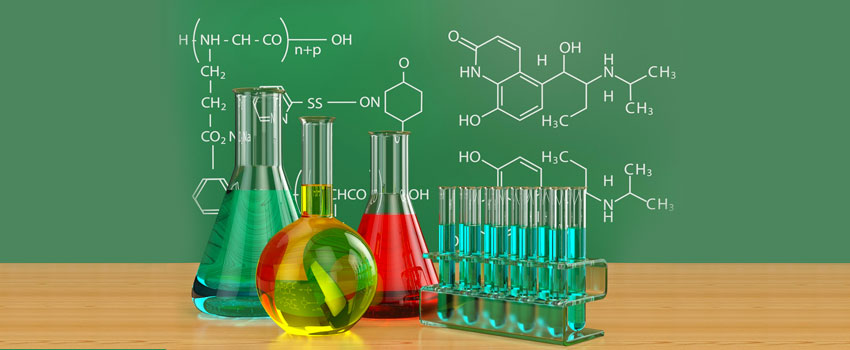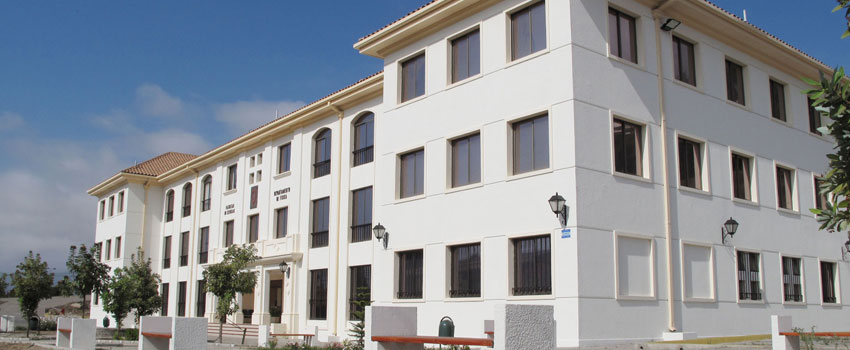
The initiative promoted by the universities of Valparaíso, La Serena and Técnico Federico Santa María, seeks to contribute to the country's challenges from the sciences, incorporating elements of innovation, technology transfer and entrepreneurship.
The Corfo Technological Capabilities Subcommittee approved the application of the project: “Our future, our responsibility: an innovative alliance for the transfer of science and the strengthening of local, national and international development”, presented to the call for the “Science and Innovation” Program by 2030.” This is an associative initiative developed by the Consortium made up of the University of Valparaíso (UV) as mandatory beneficiary, and the University of La Serena (ULS) and the Federico Santa María Technical University (UTFSM) as mandatory beneficiaries.
In an environment of new challenges and demands for technology from productive systems and their disconnection with the national R&D ecosystem, these three regional universities propose working together in a Consortium modality from the different areas of scientific knowledge based in their Faculties or Departments of Sciences, which will allow, in part, to respond to the aforementioned challenge, within the framework of the Science and Innovation project for 2030.
The initiative seeks to contribute to the country's challenges from the sciences, incorporating elements of innovation, technological transfer and entrepreneurship, through processes of curricular transformation, new offerings of undergraduate and graduate programs, with emphasis on multidisciplinary and inter-institutional, the development of national and international strategic alliances and the generation of a relevant management structure, at the same time strengthening the positioning of the Consortium as a reference at the national level and a relevant actor at the international level.
“This is undoubtedly tremendously important news for our Faculty and our University, and one that certainly makes us proud. In effect, it shows the positioning that we have achieved in recent years, with a concrete presence in terms of training and research in basic and applied science. The proposal of this project, which is based on joint work between the three participating universities, is in my opinion one of its main strengths. We always consider, in the formulation process, from the perspective of cooperation, which also responds to the institutional guidelines of our University. In order to materialize the participation of the ULS, both the Faculty of Sciences and the Vice-Rector for Research and Postgraduate Studies have committed financial resources, as have the other two universities. I believe, finally, that with this project we have a great opportunity to contribute to the continuous improvement of our undergraduate and graduate training processes, research and transfer, among other relevant aspects,” said the Dean(s) of the Faculty of ULS Sciences, Dr. Héctor Fabián Reyes.
The project considers a series of joint activities, which will complement the different visions of each institution and facilitate the construction of social capital among the actors of the different universities, which will allow the development of joint research initiatives, associative innovation projects and /or the generation of joint study programs.
The development of this joint Science and Innovation initiative for 2030 aims to consolidate itself as a national reference from the Center - North of the country in scientific knowledge applied to the needs of the productive sector and society.
Science and Innovation for 2030
The purpose of this Program is to support Chilean universities in the process of generating strategic plans or roadmaps, to promote a transformation process in their faculties, in which they teach study programs in the areas of basic sciences and thus allow a their greater participation in technological transfer, innovation and scientific-technological-based entrepreneurship in the country.

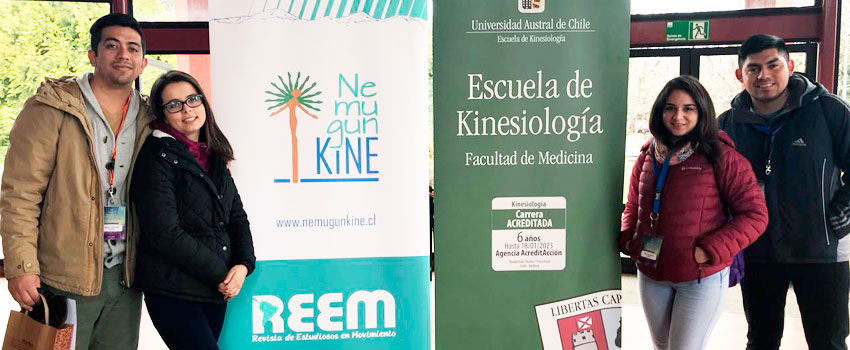
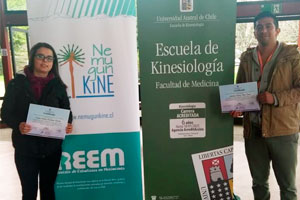 Within the presentations selected in the thesis modality and as an oral presentation, two investigations from the Kinesiology degree at the University of La Serena were presented: “Immediate variation in the intensity of muscle activation of the gluteus medius and tibialis anterior, in response to the induction of foot pronation during running”, by Camila Rodríguez Paredes, Joaquín Robledo Medalla, Diego Rojas Orostegui and Tracy Bozo Núñez, and “Immediate changes in the three-dimensional kinematics of the head and neck after the induction of foot pronation in static uni- and bipodal support”, by Abraham Díaz Torres and Belén Vega Fredes. Both theses guided by academic Edwin Contreras Acevedo.
Within the presentations selected in the thesis modality and as an oral presentation, two investigations from the Kinesiology degree at the University of La Serena were presented: “Immediate variation in the intensity of muscle activation of the gluteus medius and tibialis anterior, in response to the induction of foot pronation during running”, by Camila Rodríguez Paredes, Joaquín Robledo Medalla, Diego Rojas Orostegui and Tracy Bozo Núñez, and “Immediate changes in the three-dimensional kinematics of the head and neck after the induction of foot pronation in static uni- and bipodal support”, by Abraham Díaz Torres and Belén Vega Fredes. Both theses guided by academic Edwin Contreras Acevedo.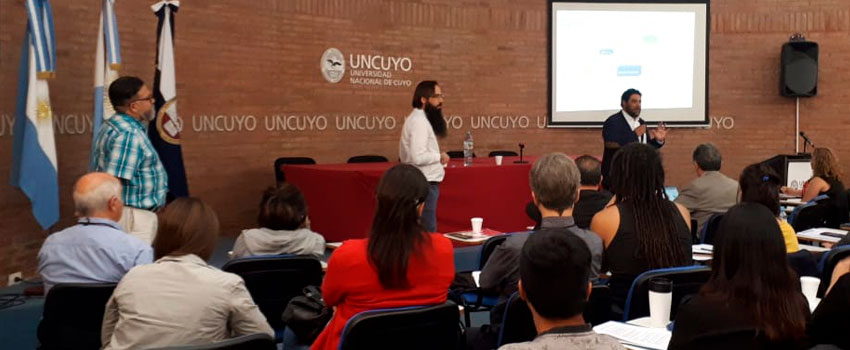
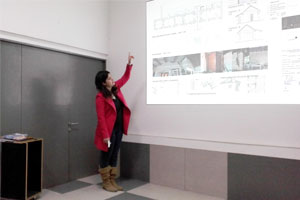
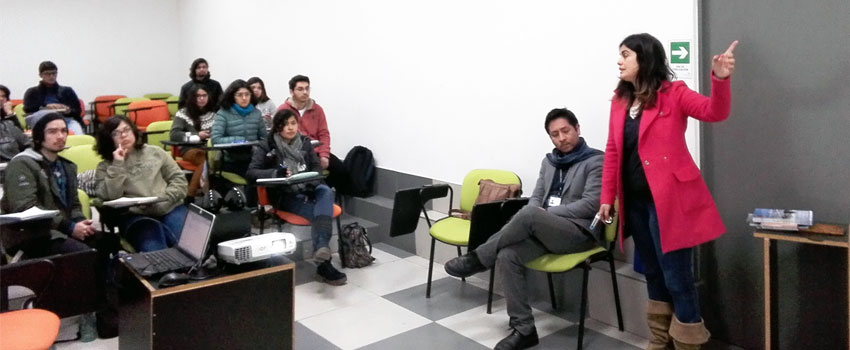
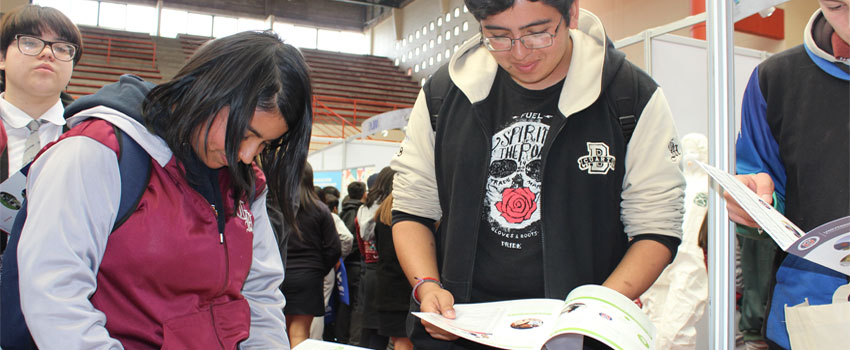
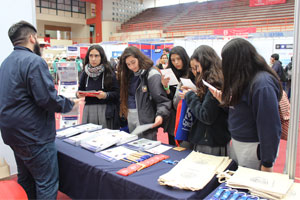 This activity, supported by the different educational centers in the area and organized by the SP-21 Agency, had a high turnout and, according to the developers of the activity, the young people were very cooperative, making it clear that they are attentive to their future. and interested in knowing the different options offered by institutions in the region.
This activity, supported by the different educational centers in the area and organized by the SP-21 Agency, had a high turnout and, according to the developers of the activity, the young people were very cooperative, making it clear that they are attentive to their future. and interested in knowing the different options offered by institutions in the region.